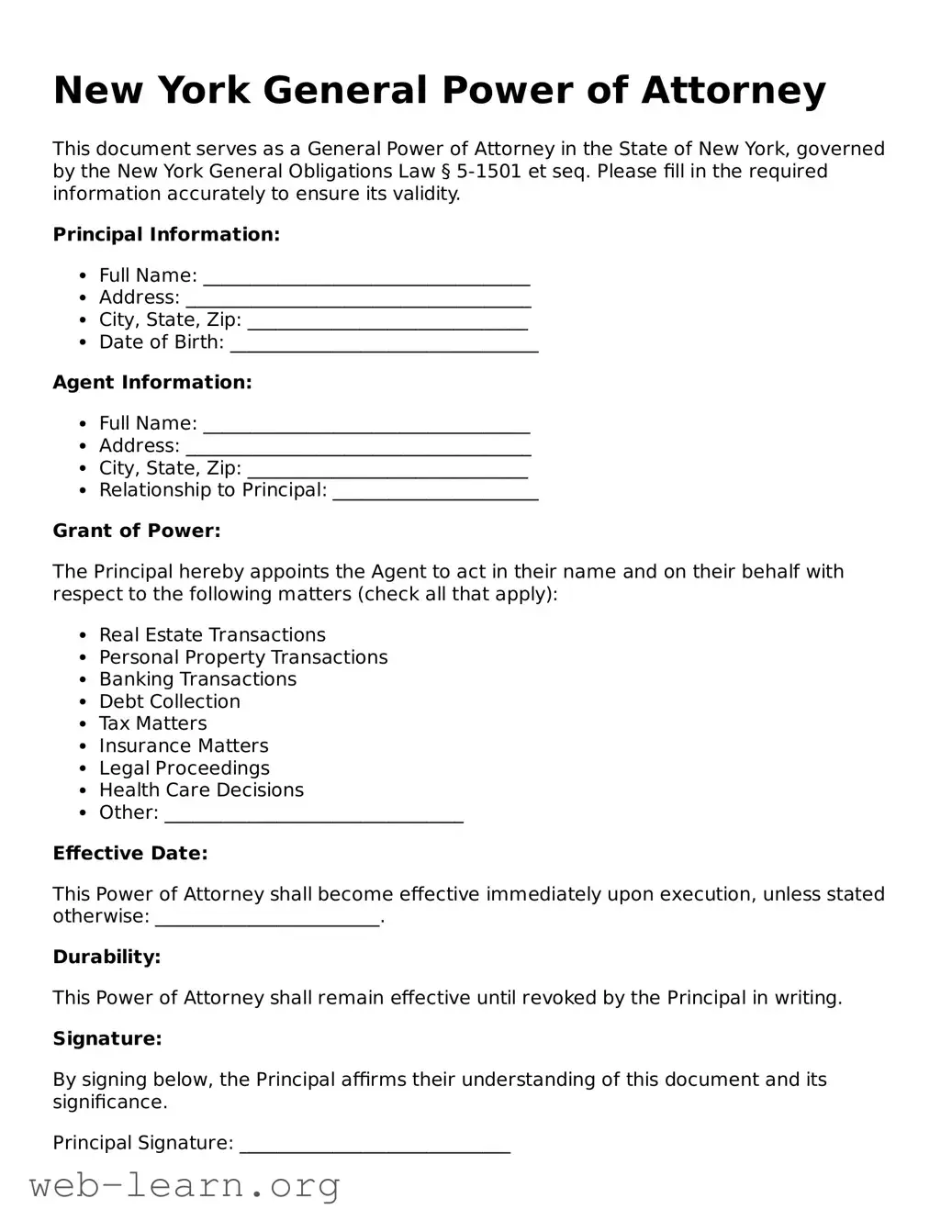New York General Power of Attorney
This document serves as a General Power of Attorney in the State of New York, governed by the New York General Obligations Law § 5-1501 et seq. Please fill in the required information accurately to ensure its validity.
Principal Information:
- Full Name: ___________________________________
- Address: _____________________________________
- City, State, Zip: ______________________________
- Date of Birth: _________________________________
Agent Information:
- Full Name: ___________________________________
- Address: _____________________________________
- City, State, Zip: ______________________________
- Relationship to Principal: ______________________
Grant of Power:
The Principal hereby appoints the Agent to act in their name and on their behalf with respect to the following matters (check all that apply):
- Real Estate Transactions
- Personal Property Transactions
- Banking Transactions
- Debt Collection
- Tax Matters
- Insurance Matters
- Legal Proceedings
- Health Care Decisions
- Other: ________________________________
Effective Date:
This Power of Attorney shall become effective immediately upon execution, unless stated otherwise: ________________________.
Durability:
This Power of Attorney shall remain effective until revoked by the Principal in writing.
Signature:
By signing below, the Principal affirms their understanding of this document and its significance.
Principal Signature: _____________________________
Date: ______________________________________
Witness Statement:
Witness Name: ______________________________
Witness Signature: __________________________
Date: ______________________________________
Notary Public:
State of New York
County of _______________________
On this ______ day of ____________, 20___, before me, a notary public, personally appeared [Principal's Name].
Notary Signature: ________________________
My Commission Expires: ________________
